FORT LEAVENWORTH, Kan. (March 24, 2011) -- When members of the Senegal army serve in peacekeeping operations in other African nations, they're known as a force for good, said a former U.S. Army attachAfA to that country.
On March 12-18, Senegalese officers visited with Fort Leavenworth's Center for Army Lessons Learned to further their professional abilities. Senegal wants to stand up a similar organization in its country. Also, U.S. CALL employees got the chance to ask Senegalese about their experience in peacekeeping operations in Africa.
The sub-Saharan African country has been a republic since 1960. There are 21,000 personnel in the Senegal military, with about 1,500 deployed in various peacekeeping operations.
Maj. Karl Asmus, Army International Affairs' Africa Branch, recently served as an attachAfA in Senegal. He escorted Col. Mar Ndoye, Lt. Col. Saifoulaye Sow, Capt. Moa Diop and Senegal's student in U.S. Army Command and General Staff College' Intermediate Level Education class 2011-01, Capt. Thiendella Fall.
Asmus said the Senegal military is setting a positive professional example in the region.
"People in (African) countries they go to, Senegalese have trust and confidence of those people," Asmus said. "They see a Senegal uniform, and they see 'He's a force for good, he's not malevolent,' and they ask why their soldiers can't be like that."
Senegal receives training through a U.S. State Department program, Africa Contingency Operations Training and Assistance, or ACOTA. According to a fact sheet from U.S. Africa Command Public Affairs, AFRICOM acts as mentors and advisers for ACOTA and U.S. contractors provide on-the-ground training at the battalion level. Once trained, Senegalese military personnel can support the African Union, United Nations or other regional security organizations. Several other African nations are trained in this way.
Sow told CALL personnel in a briefing that Senegal is also part of a regional security organization, Economic Community of West African States, or ECOWAS, which is currently responding to a crisis in the Ivory Coast. ECOWAS is a 16-member union.
Sow explained Senegal has also been involved in peacekeeping operations in Gambia, a country inside Senegal, and Guinea-Bissau. They have an internal conflict in the southern region, but Sow said military leaders consider the conflict a political issue, not a military one.
Senegal also has experience in Liberia, Congo, the Darfur region of Sudan and many others in the area.
Sow said Senegal's military also contributes to infrastructure building, in its own nation and in the region. The military builds roads, dams, airfields and bridges, Sow said. Military clinics are open to the public, which gives public access to medical doctors they would not have otherwise, Asmus said.
"The Senegal army takes responsibility for health of civilians," Asmus said.
Owen McCauley, multinational section of CALL, said information sharing would continue regarding lessons learned between the two armies. CALL is sending Senegal several of its publications of lessons learned from the U.S. Army, as well as showing them how the organization works.
McCauley said CALL is an example of something that makes a difference in the U.S. Army, but doesn't require a lot of resources or finances.
"You can adapt our techniques and principals to almost anybody with limited resources," he said.
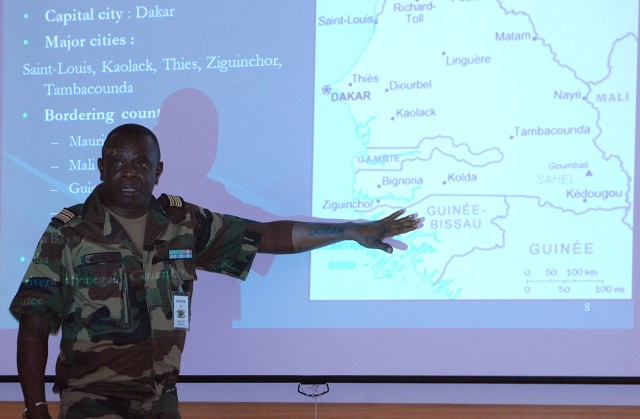
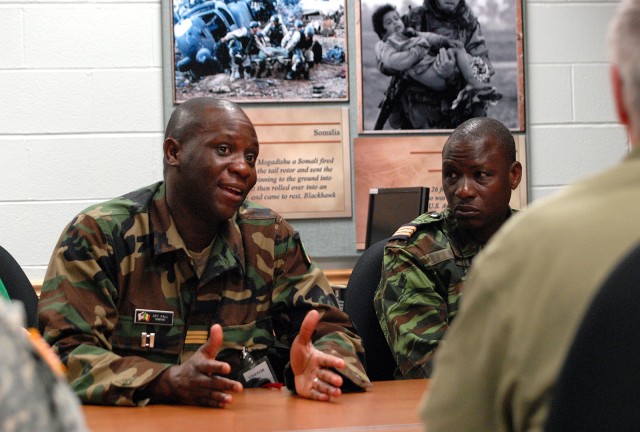
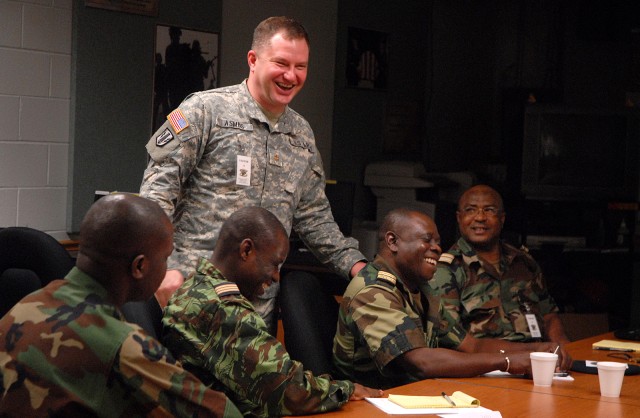
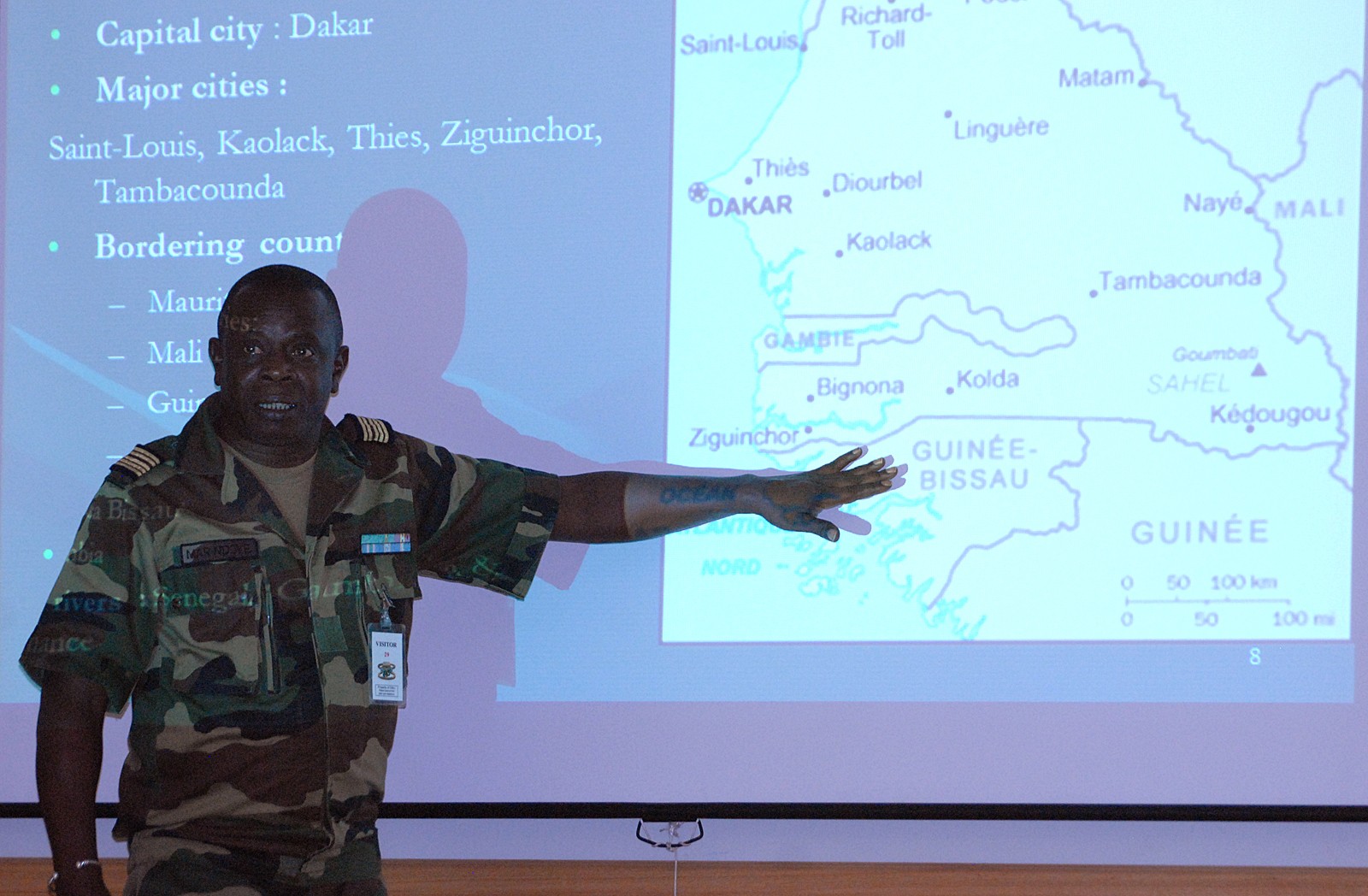
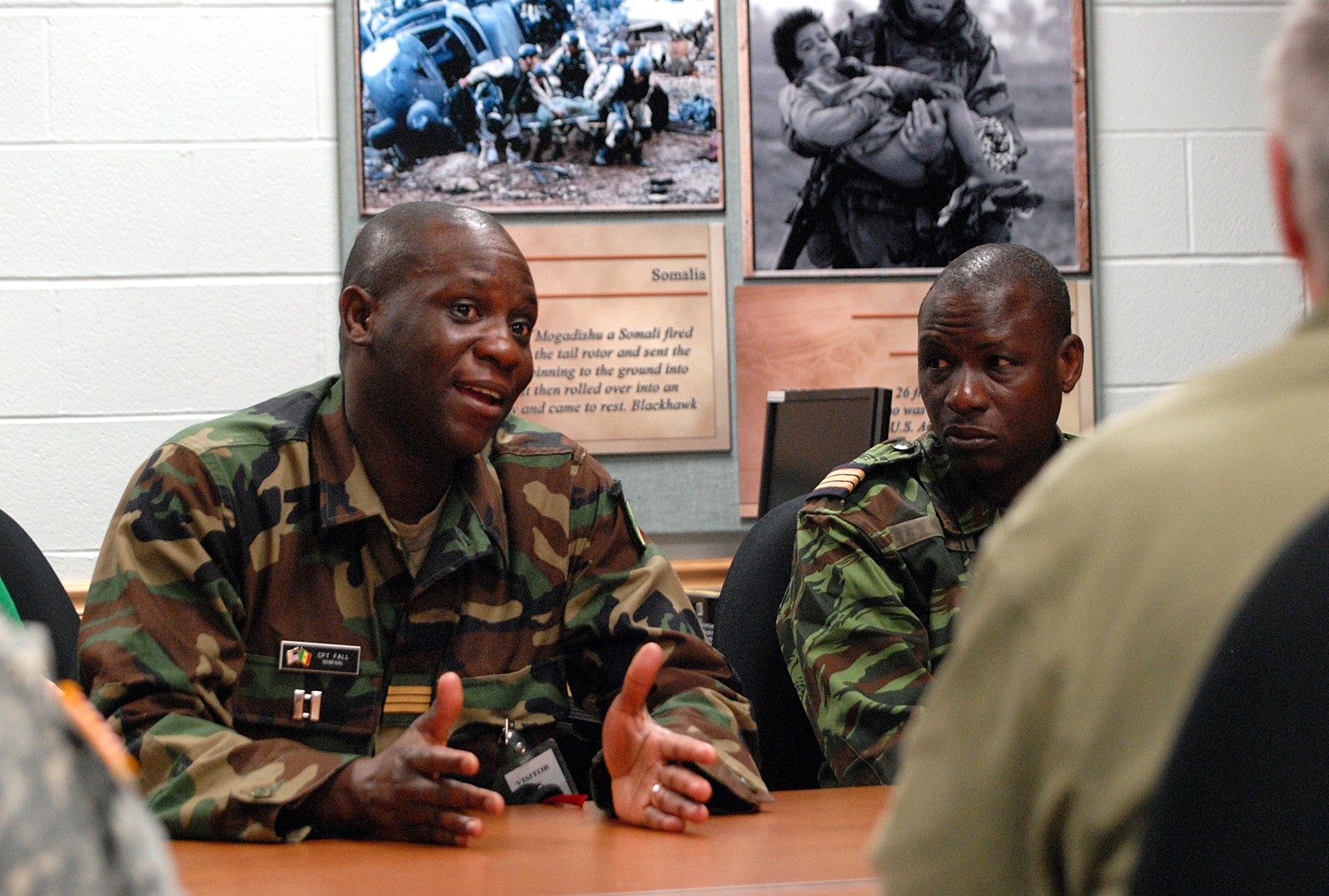
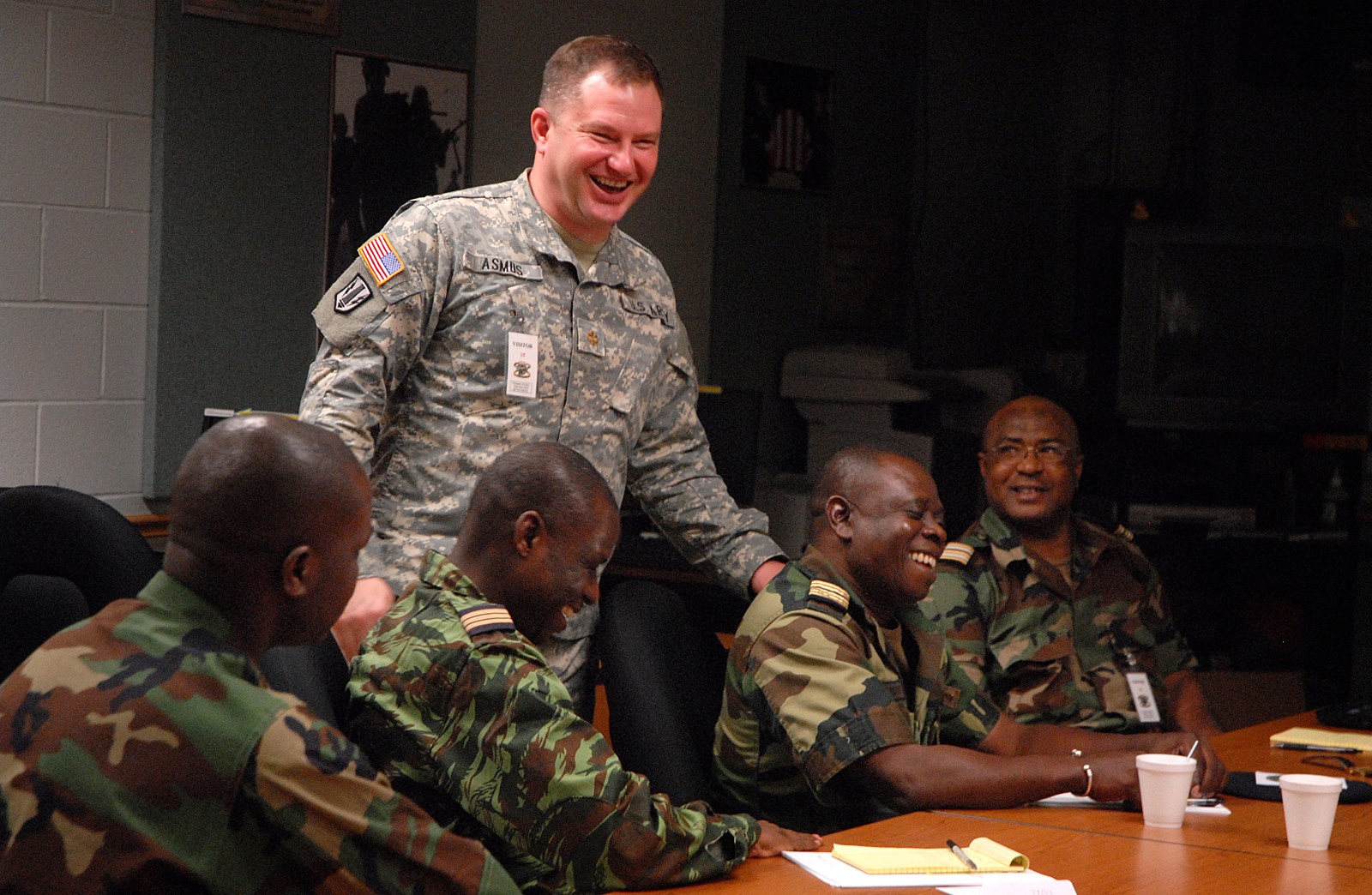
Social Sharing